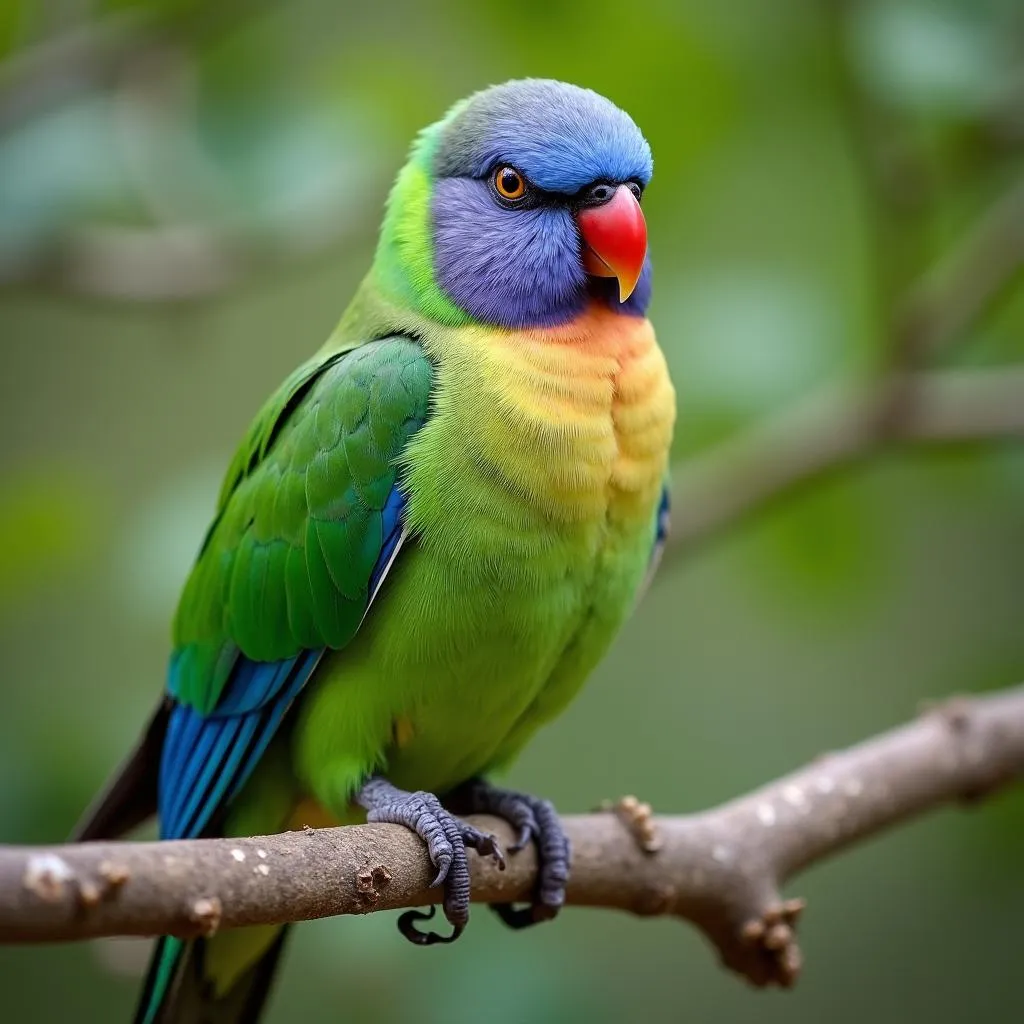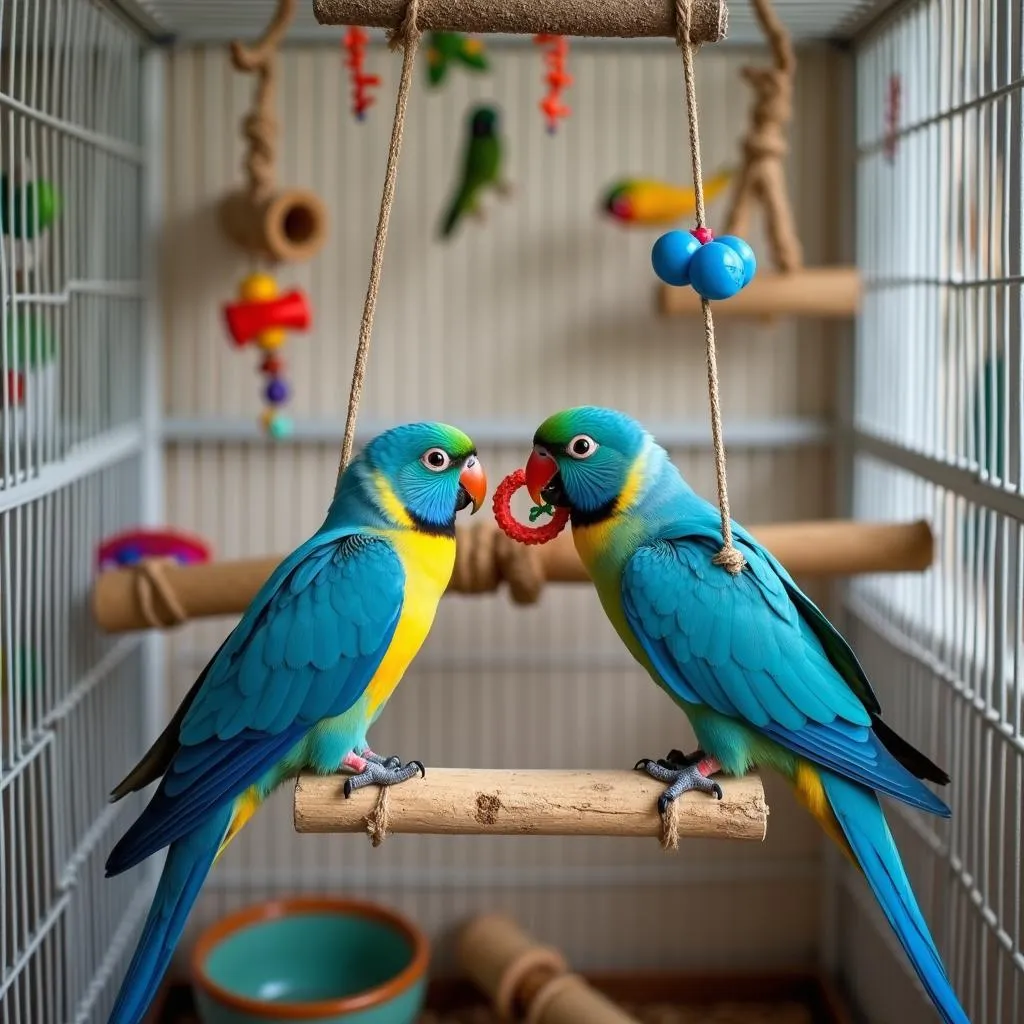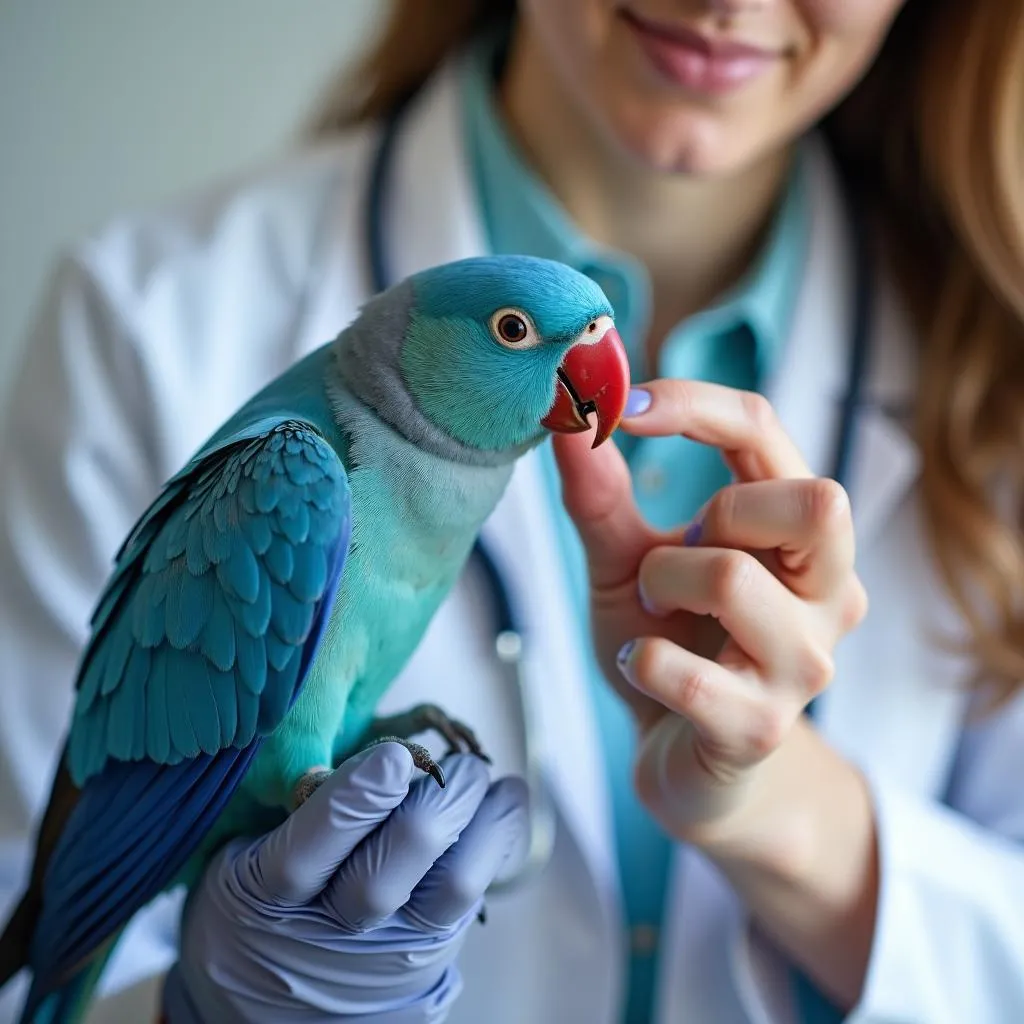The Blue African Lovebird: A Complete Guide to This Vibrant Parrot
The Blue African Lovebird, also known as the peach-faced lovebird, is a small, affectionate parrot native to the arid regions of southwestern Africa. Known for their vibrant plumage, playful personalities, and strong pair bonds, these birds have captured the hearts of bird lovers worldwide. This comprehensive guide delves into the captivating world of blue African lovebirds, covering everything from their origins and characteristics to their care and conservation.
Unveiling the Blue African Lovebird: Origins and Appearance
Native to the dry woodlands and savannas of southwestern Africa, blue African lovebirds are highly adaptable birds, thriving in a variety of habitats. Their small size, typically reaching 5-6 inches in length, belies their big personalities. The name “lovebird” originates from the strong, affectionate bonds they form with their mates, often seen cuddling and preening each other.
A Kaleidoscope of Colors: Identifying the Blue African Lovebird
The blue African lovebird’s most distinctive feature is its vibrant plumage. While the name suggests a predominantly blue bird, their feathers boast a stunning array of colors. Their faces are adorned with a peachy-pink mask, hence the alternative name “peach-faced lovebird.” Their bodies are primarily green, with blue markings on their rumps and wings.
 Blue African Lovebird Perched on a Branch
Blue African Lovebird Perched on a Branch
Beyond the Looks: Understanding the Blue African Lovebird’s Personality
Blue African lovebirds are energetic, playful, and social creatures. Their inquisitive nature and love for exploration make them a joy to observe. These intelligent birds thrive on interaction and stimulation, requiring ample mental and physical enrichment to prevent boredom.
Providing a Loving Home: Blue African Lovebird Care
Creating a comfortable and enriching environment is crucial for the well-being of your blue African lovebird. These social birds thrive in pairs or small flocks, so it’s recommended to keep them with a companion. A spacious cage with plenty of toys, perches, and opportunities for climbing is essential to keep them entertained and stimulated.
 Pair of Blue African Lovebirds Playing in a Cage
Pair of Blue African Lovebirds Playing in a Cage
The Diet of a Blue African Lovebird: Nourishing Your Feathered Friend
A well-balanced diet is vital for the health and longevity of your blue African lovebird. Their diet should consist of a high-quality seed mix, supplemented with fresh fruits, vegetables, and occasional treats like millet sprays. Providing fresh, clean water daily is equally important.
Ensuring a Long and Happy Life: Health Considerations
Like all parrots, blue African lovebirds are susceptible to certain health issues. Regular veterinary checkups are crucial to detect and address any potential problems early on. Providing a clean environment, a balanced diet, and ample mental and physical stimulation are key to preventing health complications.
 Veterinarian Examining a Blue African Lovebird
Veterinarian Examining a Blue African Lovebird
Conservation Status: Protecting the Blue African Lovebird
Fortunately, blue African lovebirds are not currently considered endangered. However, habitat loss and the illegal pet trade pose threats to their wild populations. Choosing captive-bred birds from reputable breeders is essential to support ethical breeding practices and ensure the well-being of these beautiful creatures.
FAQs: Answering Your Questions About Blue African Lovebirds
Q: Are blue African lovebirds good for beginners?
A: While relatively easy to care for, blue African lovebirds require a significant time commitment and can be quite vocal. They are best suited for experienced bird owners or those willing to dedicate the necessary time and effort.
Q: How long do blue African lovebirds live?
A: With proper care, blue African lovebirds can live for 10-15 years, sometimes even longer.
Q: Do blue African lovebirds talk?
A: While not as renowned for their talking abilities as some larger parrots, blue African lovebirds can learn to mimic words and phrases with patience and training.
Q: What are the signs of a healthy blue African lovebird?
A: A healthy blue African lovebird will have bright, clear eyes, clean feathers, a healthy appetite, and be active and playful.
Q: Can I keep a single blue African lovebird?
A: It’s not recommended to keep a single blue African lovebird. These social creatures thrive in pairs or small flocks and can suffer from loneliness and boredom if kept alone.
Finding More Information
For more insights into caring for your blue African lovebird, you can refer to our article on african love birds price in kerala.
Exploring the World of African Lovebirds
Ready to learn more about these fascinating creatures? Discover more about different types of lovebirds and their unique characteristics.
Connect with Us
For any inquiries or assistance with your blue African lovebird, our team is here to help. Contact us at Phone Number: +255768904061, Email: [email protected] Or visit us at: Mbarali DC Mawindi, Kangaga, Tanzania. We have a dedicated customer service team available 24/7.
